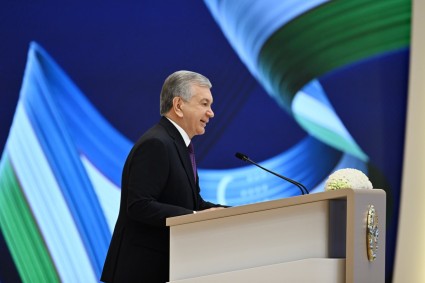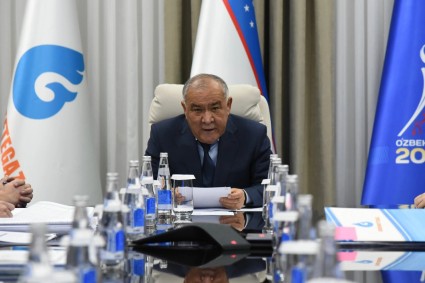The government is receiving more revenue due to rising gold prices, while increasing spending faster than projected, the Central Bank said in a draft concept of the main axes of monetary policies for 2026 and the 2027-2028 period.
Reportedly, the gap between revenues and expenditures of the consolidated budget (including the state budget, budgets of state target funds, off-budget funds of budget-financed organizations, and funds of the Reconstruction and Development Fund) narrowed in the first half of the year. While the consolidated budget deficit reached 1.9% of GDP in the first year-half , compared to 2.4% a year earlier, by the end of the second quarter (April-June) the figure reached 3.4% of GDP, or 16 trillion soums.
This year, state budget revenues, mainly due to rising gold prices, are growing faster than expenditures, but the dynamics of budget expenditures have also accelerated significantly. In particular, state budget revenues for nine months increased by 20.6% year-on-year (19% in the same period of 2024), while expenditures increased by 20.5% (9% a year earlier).
Budget expenditures implementation relative to the plan reached 90.4% compared to 78.1% in the same period last year. That is, during this period, the state fulfilled 90.4% of expenditures plan that was set for the entire year. A year ago, during the same period, it managed to spend only 78.1% of the annual plan.
The Central Bank noted that the data indicated to a continuation of a stimulating fiscal policies, meaning the government is actively spending to support the economy. However, in the second quarter, the fiscal impulse was negative (when the government spent less money than before, or slows down the growth of spending, this weakens the budget's impact on the economy), indicating more restrained stimulus compared to the beginning of the year and resulting in moderate growth of the GDP gap in the first half of the year.
Despite maintaining the fiscal deficit within 3% of GDP, as planned at the beginning of the year, budget expenditure surpassed expectations due to high revenues, mainly due to rising gold prices.
According to the Central Bank, this dynamic supports domestic economic activity, but at the same time increases aggregate demand and contributes to the persistence of inflationary pressure.
Previously, the International Monetary Fund recommended that the Uzbek government mitigate the impact of gold prices on budget expenditures. Unstable gold prices create a risk of inflationary pressure on spending at high prices and a risk of reduced spending at low prices, which amplifies macroeconomic fluctuations. Therefore, Uzbekistan is advised to strive to minimize the impact of changes in gold prices on government spending.
It should be noted that state budget revenues for January-June amounted to 144.2 trillion soums, which is 19.2% more than in the same period of 2024. Expenditures increased by 16% to 173.3 trillion soums. 86.2 trillion soums were allocated to social spending – this is 49.8% of all budget expenditures. This is slightly more than in the first half of last year (49.5%).
In nine months, Uzbekistan exported a record $9.9 billion worth of gold, which is 1.7 times more than in the same period last year. Gold accounts for 37.1% of the country's total exports.











